Keywords: Business Ethics
-
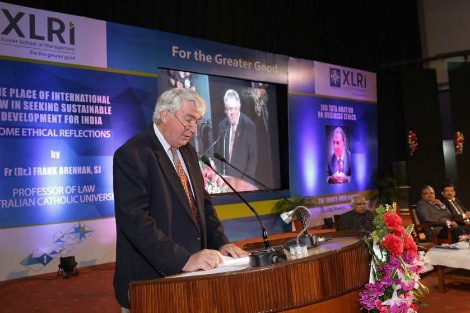
ENVIRONMENT
- Frank Brennan
- 02 December 2016
9 Comments
Neither India nor Australia can go it alone when confronting a global issue such as climate change. India cannot disregard the effects on other nations when it adopts laws and policies for alleviating the poverty of the poorest of the poor. Australia cannot disregard the effects on other nations when it considers restricting the availability of resources for export such as coal which might help provide electricity for the world's poorest citizens.
READ MORE 
-

ENVIRONMENT
- Frank Brennan
- 28 November 2016
'No matter what the economic, political and legal problems confronted by modern day India, our response can be improved by an application of the key principles and norms developed in the international law of trade and human rights, helping to enunciate the realm of law, regulation and political accountability, enhancing public scrutiny providing the right environment for doing business.' Frank Brennan presents the 25th JRD Tata Oration, Xavier School of Management, Jamshedpur, India, 26 November 2016.
READ MORE
-
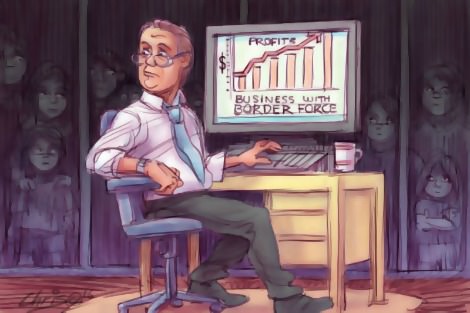
AUSTRALIA
- Rod Grant
- 18 November 2016
18 Comments
Having a sense of something as right or wrong, good or bad, is the essence of humanity. We get it from home, from education, religion, friends, the media. It's the sniff test or the pub test or the gut feeling or the Bible or Quran or Torah. We all have it. And just as people have a sense of right and wrong, we also have a very good humbug detector, and it's clanging loudly when politicians unctuously claim all their 'stop the boats' strategies are driven by desire to prevent drownings at sea.
READ MORE 
-
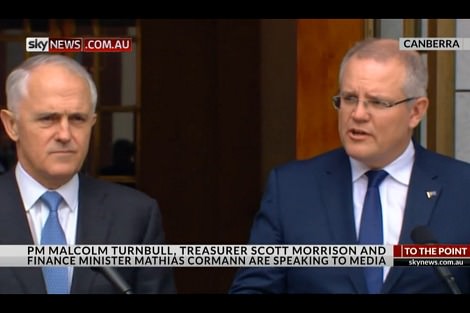
ECONOMICS
- Andrew Hamilton
- 20 September 2016
4 Comments
It is a welcome change to see budgets spoken of in moral terms. The government recently insisted on a moral responsibility to future generations to fix the deficit. And the Australian Catholic bishops welcomed on moral grounds the compromise that saw dropped from the budget measures which would further disadvantage vulnerable people. The difference was that the government's argument was focused on the budget, whereas the bishops' focused on particular groups of people.
READ MORE 
-

AUSTRALIA
- Fatima Measham
- 05 August 2016
Perhaps what will ultimately convince media and entertainment companies that it is in their interest to be sincere about diversity is that there's money in it. A UCLA study found that in 2014, eight films that had diverse casts (out of 163) also had the highest median global revenues and returns on investment. In addition, TV shows with majority non-white casts rated extremely well, even among white households. This challenges conventions around what media consumers find appealing.
READ MORE 
-

RELIGION
- Andrew Hamilton
- 19 May 2016
13 Comments
The bishops speak less trenchantly than Pope Francis, who criticises sharply the assumptions and practices of neoliberal economics. But in the context of this election, they add their voice to that of those who are concerned about economic assumptions that enrich the few and exempt corporations and business from social responsibility. Their statement will encourage those who see the now notorious behaviour of banks, finance business and corporations as symptomatic of a vicious economic ideology.
READ MORE 
-
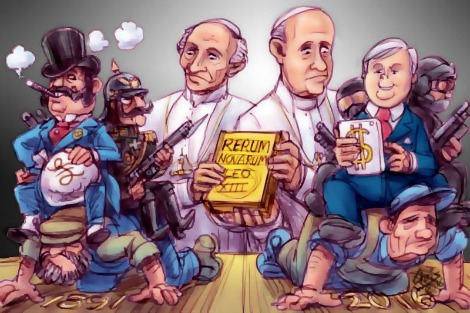
RELIGION
Pope Francis is determined to highlight the opposition of Christian social thinking to the tenets of neoliberalism or market fundamentalism, an ideology which assumes that free markets of themselves will produce the best outcome, and which pushes aside considerations of social or distributive justice. It is unlikely Francis would be waving the flag of social justice so boldly on the world stage had Pope Leo XIII not written his famous social manifesto, Rerum Novarum, 125 years ago.
READ MORE 
-
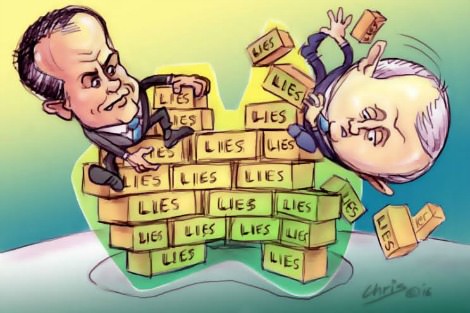
AUSTRALIA
- Justin Glyn
- 11 April 2016
10 Comments
We got a lesson in the art of language from the Minister of Immigration, Peter Dutton, whose redefinition of the word 'detention' was reminiscent of Humpty Dumpty's remark in Alice Through the Looking Glass: 'When I use a word it means just what I choose it to mean, neither more nor less.' We are social creatures who make real decisions based on the representations of others. Once we know we cannot expect the truth from each other, especially those who govern, society can no longer function.
READ MORE 
-

AUSTRALIA
- Andrew Hamilton
- 03 March 2016
9 Comments
Who better to consult than Dr Hippocrates and his humours? Before Tony Abbott's deposition the choleric element dominated in Australia, full of sound and fury. This has been followed by the preponderance of the sanguine humour, expressing itself in that sunny optimism that makes light of problems. But more recent events suggest that the humours are again in chronic imbalance. The core weakness in the Australian constitution has not been removed with the accession of Malcolm Turnbull.
READ MORE 
-

AUSTRALIA
- Andrew Hamilton
- 05 November 2015
10 Comments
What are spectators to make of Adam Goodes' challenge to racial prejudice? What are they to make of David Pocock's outspoken defence of the environment and criticism of coal mining, or of his and his partner's refusal to marry in solidarity with LBGT couples? They make space for us to reflect on our own response to large human questions. But that space also invites us to judge our own integrity. The opprobrium such role models meet may arise out of discomfort with unwelcome self-questioning.
READ MORE 
-

- Frank Brennan
- 01 September 2015
1 Comment
If you want to form government in Australia and if you want to lead the Australian people to be more generous, making more places available for refugees to resettle permanently in Australia, you first have to stop the boats. If you want to restore some equity to the means of choosing only some tens of thousands of refugees per annum for permanent residence in Australia from the tens of millions of people displaced in the world, you need to secure the borders. The untrendy truth is that not all asylum seekers have the right to enter Australia but that those who are in direct flight from persecution whether that be in Sri Lanka or Indonesia do, and that it is possible fairly readily (and even on the high seas) to draw a distinction between those in direct flight and those engaged in secondary movement understandably dissatisfied with the level of protection and the transparency of processing in transit countries such as Malaysia and Indonesia. The popular evil is that political
READ MORE
-
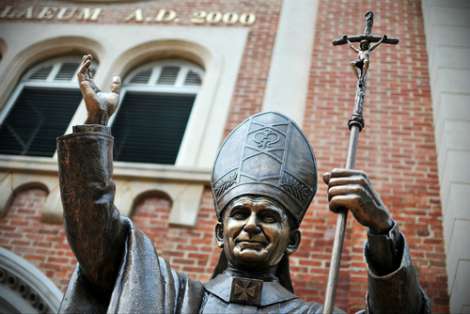
AUSTRALIA
- Andrew Hamilton
- 27 August 2015
27 Comments
Religious schools have emphasised the transmission of faith and an ethical way of life through a network of relationships, symbols and processes. But this is now being tested, with the dominant view that values and faith are a private matter best hosted inside the family. The operative goals of schools become the academic and economic advancement of individuals, with religious classes and rituals little more than decoration and rhetorical branding.
READ MORE 